University Archives A/V
Item set
- Title
- University Archives A/V
Items
-

-
 Footage from the convocation of Paul Henry, President of the University of Rennes, on November 9, 1956, in which he was awarded with an honorary Doctor of Laws degree.
Footage from the convocation of Paul Henry, President of the University of Rennes, on November 9, 1956, in which he was awarded with an honorary Doctor of Laws degree. -
 Mario Cuomo speaks at the 1985 University of Rochester Commencement after being awarded an honorary Doctor of Laws degree.
Mario Cuomo speaks at the 1985 University of Rochester Commencement after being awarded an honorary Doctor of Laws degree. -
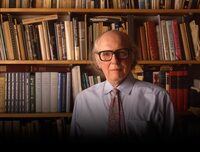 William Harrison Riker was born on September 22, 1920 in Des Moines, Iowa. After graduating from Depauw University in 1942, Riker attended Harvard from 1944 to 1948. From Harvard Riker moved to Appleton, Wisconsin, to take a position as an assistant professor at Lawrence University, where he would remain until 1962, when he accepted an appointment as Chair of the Department of Political Science at the University of Rochester. At Rochester, Riker built a Political Science department based on his new theories. He died on June 26, 1993.
William Harrison Riker was born on September 22, 1920 in Des Moines, Iowa. After graduating from Depauw University in 1942, Riker attended Harvard from 1944 to 1948. From Harvard Riker moved to Appleton, Wisconsin, to take a position as an assistant professor at Lawrence University, where he would remain until 1962, when he accepted an appointment as Chair of the Department of Political Science at the University of Rochester. At Rochester, Riker built a Political Science department based on his new theories. He died on June 26, 1993. -

-

-
 Jimmy Carter giving the second annual Cameros Family Lecture in the Louis Alexander Palestra on October 17, 1983. His address, on the theme of “Striving for a Just Society,” advocates for human rights as an essential element of American foreign policy.
Jimmy Carter giving the second annual Cameros Family Lecture in the Louis Alexander Palestra on October 17, 1983. His address, on the theme of “Striving for a Just Society,” advocates for human rights as an essential element of American foreign policy. -

-

-

-
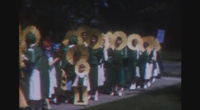 16 mm silent film showing reunion and other events at the College for Women
16 mm silent film showing reunion and other events at the College for Women -

-

-

-
 16 mm silent film of Professor Wolf Vishniac demonstrating the "Wolf Trap" device. Wolf Vishniac received the first biological sciences grant given by NASA, for the development of an instrument to safely and independently collect and detect microorganisms on other planets. The goal was to deploy the device on Mars. He tested his device, called the “Wolf Trap,” in Antarctica, which at that time had the closest atmosphere to that of Mars. Vishniac would die tragically in Antarctica while collecting equipment. A crater on Mars is named in his honor.
16 mm silent film of Professor Wolf Vishniac demonstrating the "Wolf Trap" device. Wolf Vishniac received the first biological sciences grant given by NASA, for the development of an instrument to safely and independently collect and detect microorganisms on other planets. The goal was to deploy the device on Mars. He tested his device, called the “Wolf Trap,” in Antarctica, which at that time had the closest atmosphere to that of Mars. Vishniac would die tragically in Antarctica while collecting equipment. A crater on Mars is named in his honor. -
 Footage from the construction of River Campus, 1927-1930. Video does not contain audio.
Footage from the construction of River Campus, 1927-1930. Video does not contain audio. -

-
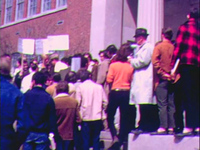 Super 8 mm silent film of protest by students with faculty and staff on River Campus
Super 8 mm silent film of protest by students with faculty and staff on River Campus -
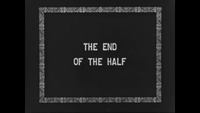
-
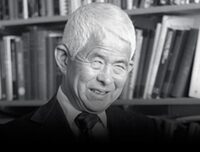 Walter Oi (1929-2013) was the Elmer B. Milliman Professor Emeritus of Economics. Oi, an authority on applied economic theory and labor markets, served on the President's Commission on an All-Volunteer Armed Force. His analysis of the unseen costs of military conscription played an important role in convincing President Richard Nixon and Congress to end the military draft. Oi's influence on U.S. public policy continued in later years as he served as vice chair of the President's Commission on Employment of People with Disabilities. Oi also worked as a consultant to the Department of Defense and the National Commission on State and Workmen's Compensation Laws. Oi earned his doctorate in economics from the University of Chicago in 1961. He taught at the University of Washington, Northwestern University, and Iowa State University before joining the University of Rochester faculty in 1967. He spent six years—from 1976 to 1982—as chair of the Department of Economics. His research on employment, wages, prices, the economics of health and safety, and the effects of disabilities have earned him international recognition and broad scholarly acclaim. During World War II, Oi spent three years in internment camps for Japanese Americans at Santa Anita Racetrack in Arcadia, Calif. and Camp Amache in Granada, Colo. By that time, Oi was well aware that he was losing his eyesight, a fact that had a profound impact on his choice of career. Oi was elected a fellow of the American Academy of Arts and Sciences in 1993. Two years later, he was named a distinguished fellow of the American Economic Association for his intellectual achievements and contributions to the field. Oi was also a distinguished fellow of the Society of Labor Economists and a fellow of the Econometrics Society. In 2000, Oi received the Secretary of Defense Medal for Outstanding Public Service for his work leading to the adoption of an all-volunteer military
Walter Oi (1929-2013) was the Elmer B. Milliman Professor Emeritus of Economics. Oi, an authority on applied economic theory and labor markets, served on the President's Commission on an All-Volunteer Armed Force. His analysis of the unseen costs of military conscription played an important role in convincing President Richard Nixon and Congress to end the military draft. Oi's influence on U.S. public policy continued in later years as he served as vice chair of the President's Commission on Employment of People with Disabilities. Oi also worked as a consultant to the Department of Defense and the National Commission on State and Workmen's Compensation Laws. Oi earned his doctorate in economics from the University of Chicago in 1961. He taught at the University of Washington, Northwestern University, and Iowa State University before joining the University of Rochester faculty in 1967. He spent six years—from 1976 to 1982—as chair of the Department of Economics. His research on employment, wages, prices, the economics of health and safety, and the effects of disabilities have earned him international recognition and broad scholarly acclaim. During World War II, Oi spent three years in internment camps for Japanese Americans at Santa Anita Racetrack in Arcadia, Calif. and Camp Amache in Granada, Colo. By that time, Oi was well aware that he was losing his eyesight, a fact that had a profound impact on his choice of career. Oi was elected a fellow of the American Academy of Arts and Sciences in 1993. Two years later, he was named a distinguished fellow of the American Economic Association for his intellectual achievements and contributions to the field. Oi was also a distinguished fellow of the Society of Labor Economists and a fellow of the Econometrics Society. In 2000, Oi received the Secretary of Defense Medal for Outstanding Public Service for his work leading to the adoption of an all-volunteer military -

-
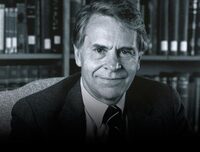 Christopher Lasch 1932-1994) was the Don Alonzo Watson Professor of History. Lasch joined the University faculty in 1970, becoming chairman of the history department in 1985. He was nationally acclaimed for the way he analyzed modern American society through the lens of history. Born in Omaha, Neb., Lasch attended Harvard University, where he earned a bachelor of arts degree in 1954. He considered going into journalism like his father, an editorial writer, but changed his mind when he was told newspapers were folding every day. He went on to Columbia University, where he earned a master's degree in 1955 and a Ph.D. in history in 1961. He taught at Williams College for three years in the 1950s and at Roosevelt University, the University of Iowa, and Northwestern University in the 1960s. Lasch gained national notoriety for his discomforting analyses of American society. The Culture of Narcissism, in which he predicted Americans would turn to increasing consumption during the 1980s, became a bestseller and led to a consulting invitation from President Jimmy Carter. Other notable books include Haven in a Heartless World: The Family Besieged, in 1977, and The Minimal Self: Psychic Survival in Troubled Times, in 1984. "My work is really an attempt to use history as a form of social criticism and to bring the past to bear on the present," he once said. Such an approach, he added, should be more common in academic circles. Instead, historians often fall into the trap of rewriting history to fit their beliefs about today's society. Lasch was especially interested in the American notion that each generation should do better economically than the one before. As he saw it, the idea that progress is inevitable has bred this century's social, political and economic problems. Liberals, with whom Lasch identified himself early in his career, opposed his later writings, which lamented the breakdown of community spirit and traditional families in America. Conservatives disliked his invectives against the elitism of the Reagan era -- and his claims that conservatism was not a presidential priority during the 1980s. Lasch was an adviser for the Center for the Study of Commercialism, which studies the way America embraces capitalism and consumption. He also was a consulting editor for a variety of national publications and a recipient of Ford and Guggenheim Foundation grants.
Christopher Lasch 1932-1994) was the Don Alonzo Watson Professor of History. Lasch joined the University faculty in 1970, becoming chairman of the history department in 1985. He was nationally acclaimed for the way he analyzed modern American society through the lens of history. Born in Omaha, Neb., Lasch attended Harvard University, where he earned a bachelor of arts degree in 1954. He considered going into journalism like his father, an editorial writer, but changed his mind when he was told newspapers were folding every day. He went on to Columbia University, where he earned a master's degree in 1955 and a Ph.D. in history in 1961. He taught at Williams College for three years in the 1950s and at Roosevelt University, the University of Iowa, and Northwestern University in the 1960s. Lasch gained national notoriety for his discomforting analyses of American society. The Culture of Narcissism, in which he predicted Americans would turn to increasing consumption during the 1980s, became a bestseller and led to a consulting invitation from President Jimmy Carter. Other notable books include Haven in a Heartless World: The Family Besieged, in 1977, and The Minimal Self: Psychic Survival in Troubled Times, in 1984. "My work is really an attempt to use history as a form of social criticism and to bring the past to bear on the present," he once said. Such an approach, he added, should be more common in academic circles. Instead, historians often fall into the trap of rewriting history to fit their beliefs about today's society. Lasch was especially interested in the American notion that each generation should do better economically than the one before. As he saw it, the idea that progress is inevitable has bred this century's social, political and economic problems. Liberals, with whom Lasch identified himself early in his career, opposed his later writings, which lamented the breakdown of community spirit and traditional families in America. Conservatives disliked his invectives against the elitism of the Reagan era -- and his claims that conservatism was not a presidential priority during the 1980s. Lasch was an adviser for the Center for the Study of Commercialism, which studies the way America embraces capitalism and consumption. He also was a consulting editor for a variety of national publications and a recipient of Ford and Guggenheim Foundation grants. -
 The 75th anniversary of the founding of the Institute of Optics was celebrated in many ways: the publication of a book, an exhibit, events, and a film entitled "The Value of an Optics Education." Video footage also includes the groundbreaking of the Goergen Biomedical Engineering Building, and the reception for the exhibit with remarks and reminiscences by those attending.
The 75th anniversary of the founding of the Institute of Optics was celebrated in many ways: the publication of a book, an exhibit, events, and a film entitled "The Value of an Optics Education." Video footage also includes the groundbreaking of the Goergen Biomedical Engineering Building, and the reception for the exhibit with remarks and reminiscences by those attending. -

